Ta Prohm, Angkor’s jungle ruins
Read "Ta Prohm, Angkor’s jungle ruins" on TravelFeed.io for the best experience
.png)
We knew from the start that three days would never be enough to visit Angkor. From what we had read, the ancient city now covered an area of approximately 401 square meters and we had decided to visit it on bike. Suffice to say that discovering it all was a lost cause already. However, our plan was to take the time to see some of the essential temples and discover some unexpected gems along the way and for that, three days would prove to be enough.
On our first day in Siem Reap, we had rushed to the entrance of the city to buy a 3-day ticket so that we wouldn’t waste any time queuing the next day. This had been a good move since it had allowed us to pay a short visit to the main temple of Angkor Wat before dawn, at a time when the site was almost empty. Most importantly, we had been able to enter the city as soon as it opened the next day. This had cost us quite a few hours of sleep but a magical morning had entirely redeemed this slight sleep deprivation.
For the entire morning, we had visited site after site with almost no-one in sight. When most tourists were focusing on Angkor Wat at sunrise, along with their guides and tour coaches, we had pedaled our way further, to the compound known as Angkor Thom. Except for a few monkeys, a handful of sleepy employees keeping a barely opened eye on the sites and a fisherman lifting his fish net near the gate of Ta Prohm Kei, we had been on our own for hours on end. The Bayon and its hundreds of Buddha heads facing all directions had been ours under the dim light of the early morning.
It was only natural then that we would try to reiterate our feat the next day. Only this time, it didn’t exactly go as planned. Along with the Bayon and Angkor Wat, Ta Prohm completed the infamous trio. Sure, we didn’t quite know this temple’s name before coming to Cambodia but its reputation preceded it.
Ta Prohm was considered one of the wildest temples in all Angkor for it had been left the way it had been discovered, meaning in ruins and overwhelmed by the jungle. Of course, restoration works had been at play and the ruins had been stabilized to allow visitors to come in without risking their lives in a landslide. Yet, the trees that had grown out of the ruins had been left in place. Nature had taken back its rights.
Because Ta Prohm was in such a state of apparent abandonment, it was precisely why it had been used as a filming location for the first Tomb Raider movie. That was also what drew many tourists in, making it one of Angkor’s most visited temples, a fact we couldn’t ignore when we got in front of the temple’s gate. Just like the day before, we had woken at 3AM. Pumped by our previous success, we had quickly emerged from our beds and ridden our one-dollar bikes to get to the city before everybody else. Predictably, we had been overtaken by reckless bus and rickshaw drivers but as expected, they were headed to Angkor Wat.
One kilometre east of Angkor Thom, on the southern part of the East Baray artificial pond, we had arrived in front of Ta Prohm. Out of breath, dizzy and soon-to-be disappointed. Indeed and contrary to the temples we had visited the day before, Ta Prohm opened at 7:30AM. We were on our own at 5AM, sure, but that wouldn’t last.
Still, we were in Angkor, one of the most iconic landmarks in the world, a place we had dreamed of discovering for years. We couldn’t let disappointment take over. Besides, the magic of Angkor lied in the seemingly endless places to visit. Sure, there were the big names but there were also the amazing places we didn’t expect. Just a few meters away from Ta Prohm, Srah Srang was one such place. We later learned that this artificial baray, or reservoir, was a popular site to view the sunrise. It was easy to see why as we sat on its stairs, looking at a red sun rising in the distance. The sky was all about shades of pink, purple and red and all we had to do was to sit there quietly beside the statue of a multiple-headed snake, admiring its beauty. For such a popular spot, it wasn’t too crowded yet either.
The immediate surroundings to the entrance to Ta Prohm were a bit more cramped when we got there and started queuing like the basic tourists we were. Tourism sure involved a lot of waiting around. There was no rush when the gates opened though. Fortunately, we were the first to enter and the first we saw Ta Prohm, it was completely devoid of any living soul, just like we had envisioned it.
Moss and leaves covered the walls that were still standing and sometimes even the boulders that had fallen to the ground. Trees were literally growing out of the ruins all around us, their thick roots penetrating the ancient buildings, as if suffocating them. Yet, as they had become one with the stone, it was hard to imagine Ta Prohm without them and there was an eerie beauty in this strange association of human genius and natural sovereignty.
Despite being in ruins, submerged by venerable trees, it was surprising to see how many well-preserved bas-reliefs the site retained. The temple, which had been originally named Rajavihara, had been founded as a Mahayana Buddhist monastery and university. Bas-reliefs depicting Buddhist mythology as well as stone reliefs of female deities, monks and temple guardians remained. They were not nearly as impressive as the bas-reliefs of Angkor Wat but they had survived looting, invading trees and the passing of time. That was quite the commanding effort.
With or without the crowds, the ancient city of Angkor was a treasure, although three days had only been enough to scratch its surface, as expected. That’s why when we left Siem Reap the next day, we wouldn’t have been able to single out our preferred temple. Everyone we had seen had something special, unique. Still, Ta Prohm was one of the most striking of all and there was no doubt it would remain a favorite among tourists for a long while.
View this post on TravelFeed for the best experience.
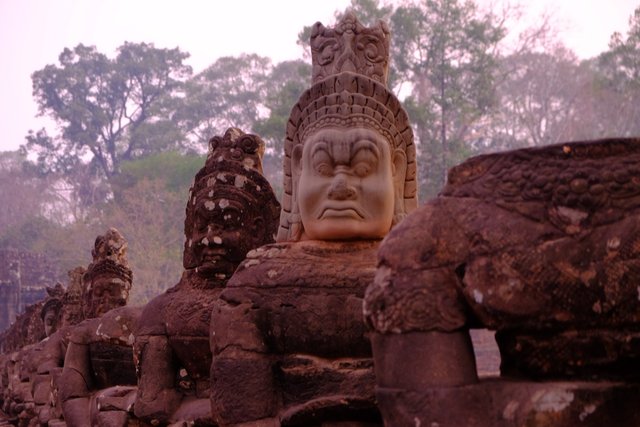
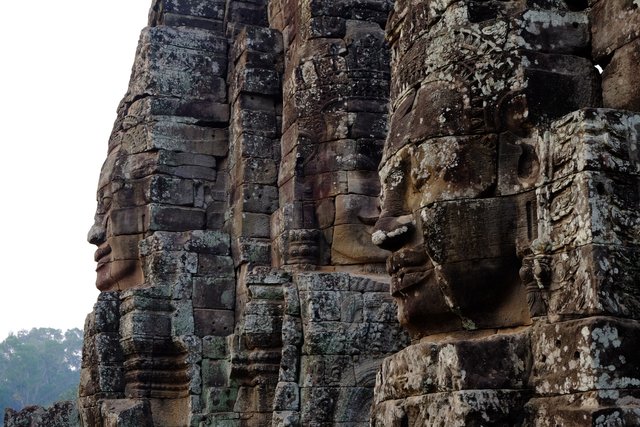
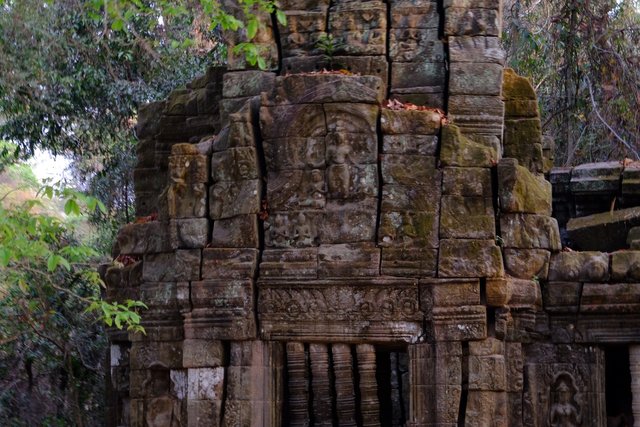
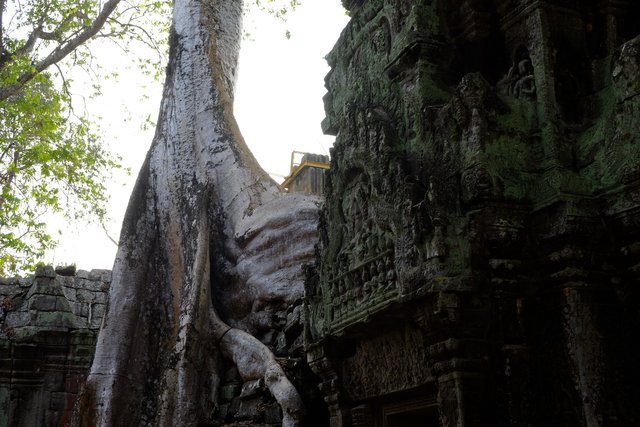
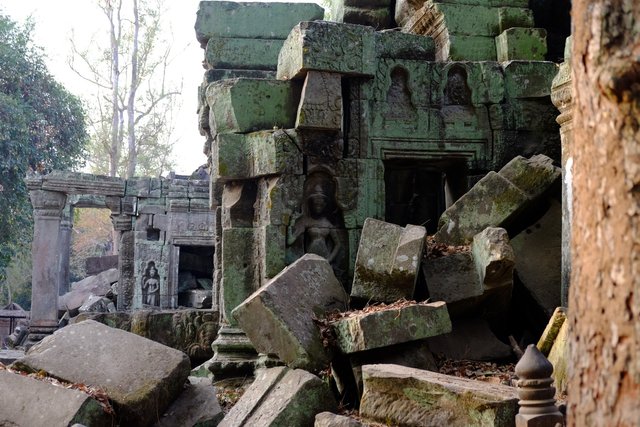
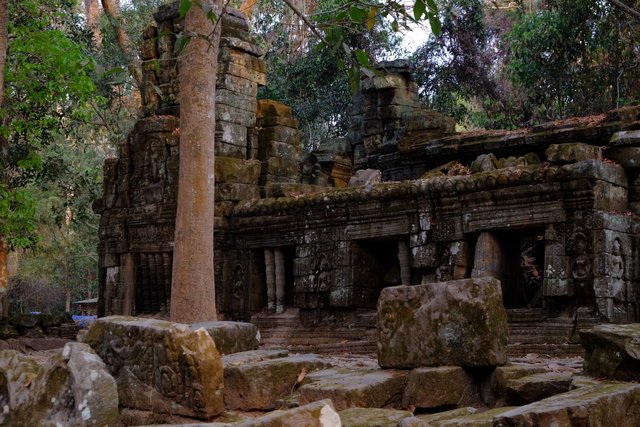
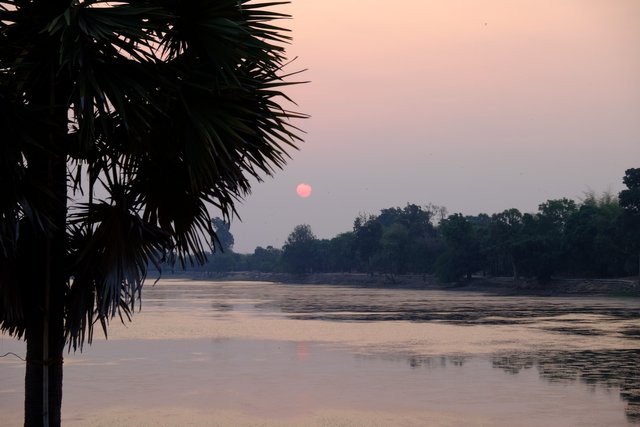
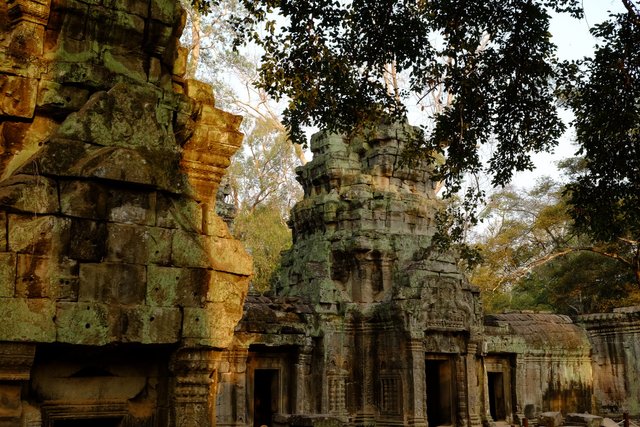
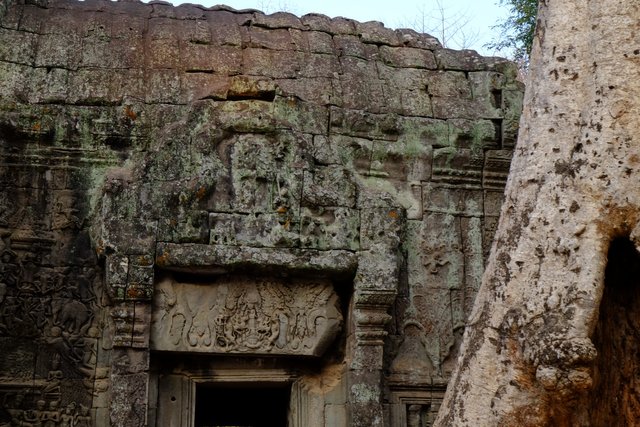
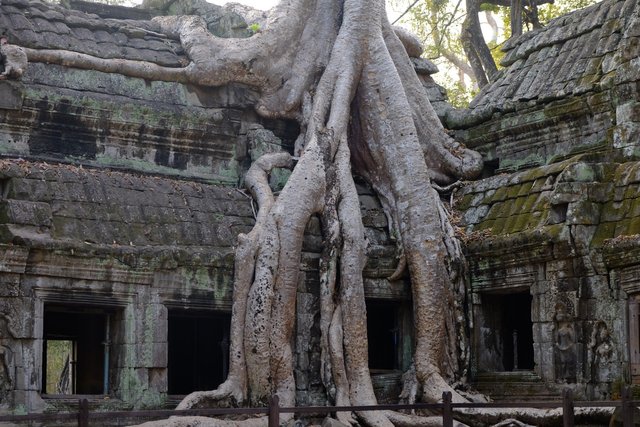
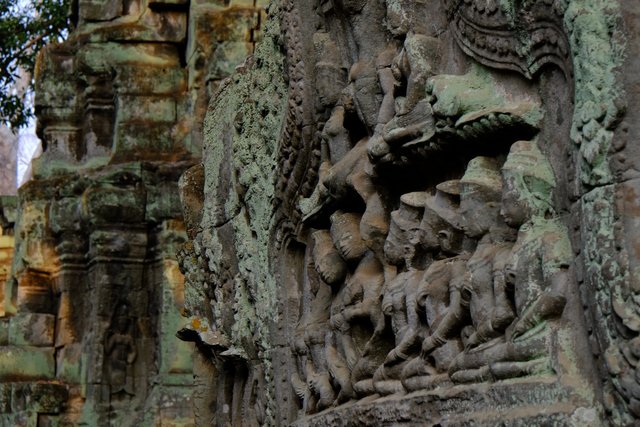
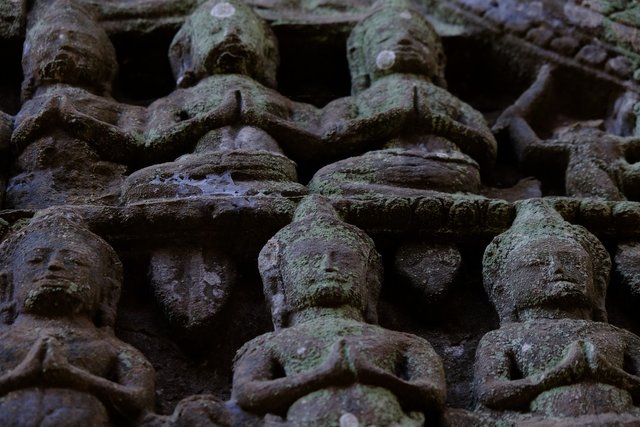
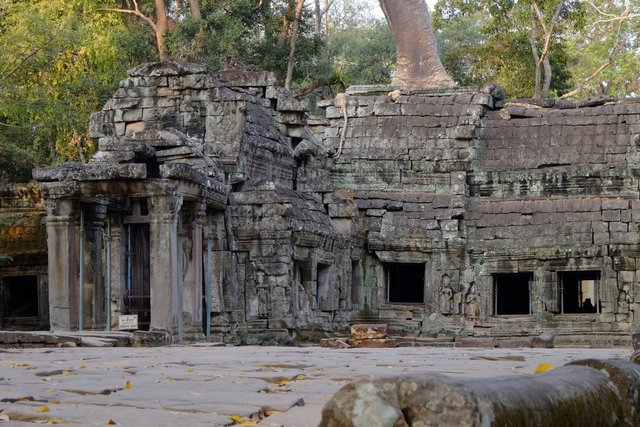
Wow, awesome shots. There is something magical about this place :) I haven´t been to this part of the world yet but I would love to go one day. Hard predict how traveling will look like in future though with all the crazy things going on now... Stay safe guys.
Btw, you might want to know that we are not on Steem anymore, the community moved to a new place after this blockchain was taken over by one person who made it centralized and censored. I cannot even write the name of our new home as they are automatically blocking posts and comments that include the name but if you look at my profile you will know where we moved ;) See you there.
Thanks! Cambodia is truly magical! :)
Those definitely are confusing times though. No one can really predict what will come next and right now, travelling sure isn't a priority for most of us. I guess you've had to change your plans by the way so I hope you're doing okay. Stay safe as well!
Also I have to say we didn't come to Steem that much lately so we've missed what happened. Thanks for the info! We will check this new home out and see you there. ;)
Hi! Did you know that steemit.com is now censoring users and posts based on their opinions?
All the posts of these users are gone!
https://github.com/steemit/condenser/commit/3394af78127bdd8d037c2d49983b7b9491397296
Here's a list of some banned users:
'roelandp', 'blocktrades', 'anyx', 'ausbitbank', 'gtg', 'themarkymark', 'lukestokes.mhth', 'netuoso', 'innerhive'See anyone you recognize? There could be more, they also have a remote IP ban list.
Will you be censored next?